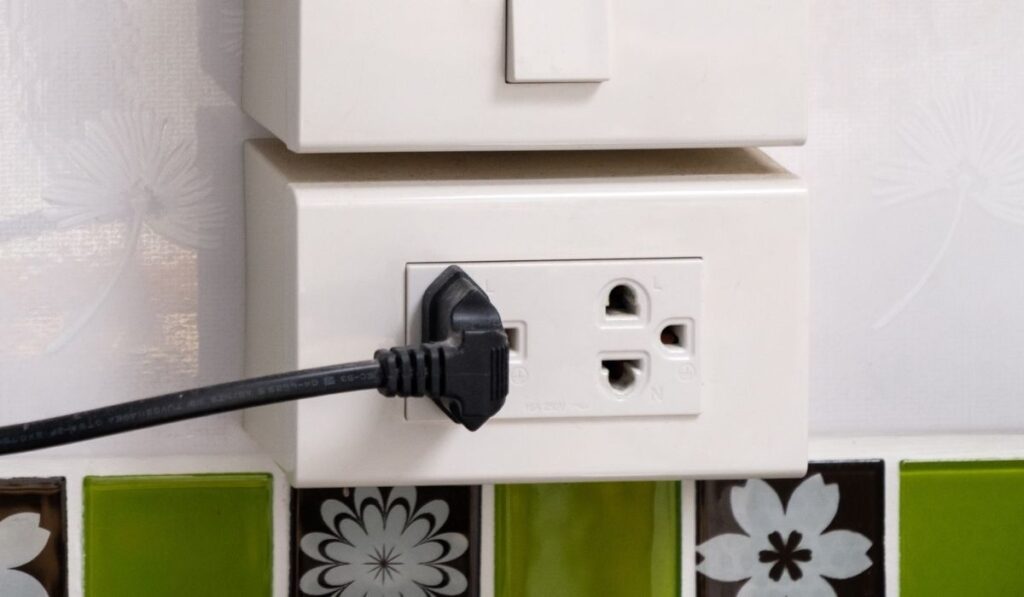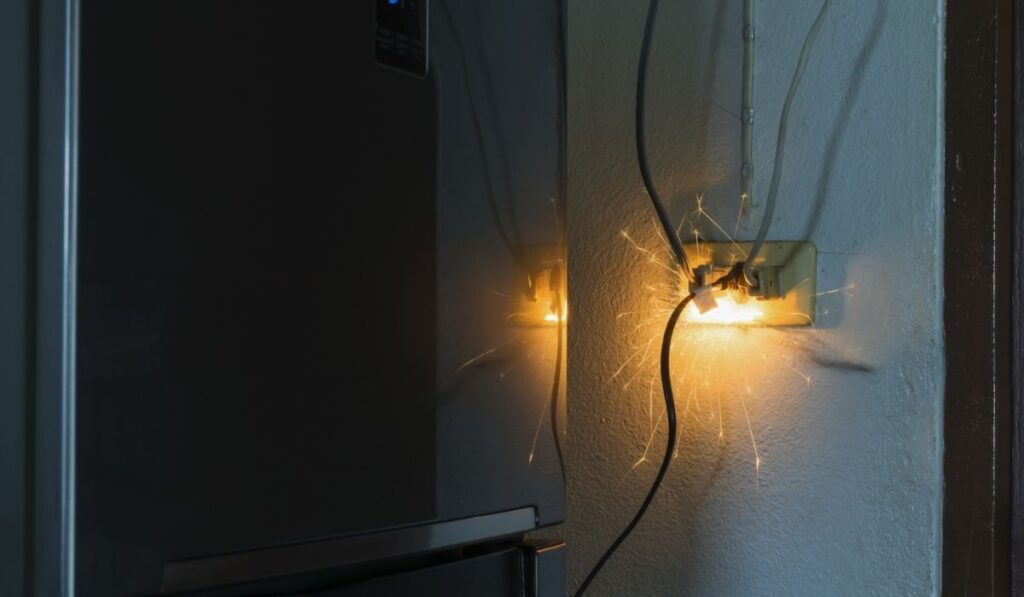Many people don’t realize that not all household outlets are suitable for your fridge. There are various factors that determine the kind of outlet your fridge should use. That said, there aren’t usually rules or local electric codes regarding whether a refrigerator needs to be on a dedicated branch circuit or not. But it would help if you were cautious all the same.
Fridges should be plugged into a standard 110-120 volt outlet in a three-pronged socket. Refrigerators are high electricity-consuming appliances that require a dedicated branch circuit. Do not use extension cords or surge protectors for safety purposes, nor should they be powered by a GFCI outlet.
You’ve landed in the right place if you’re researching the best kind of outlet to plug your fridge into. This guide covers whether refrigerators need a special outlet and if it’s safe to plug a refrigerator into an extension cord. We’ll also consider whether you can plug a refrigerator into a surge protector.
Do Refrigerators Need a Special Outlet?

No. Refrigerators don’t need 220-volt outlets or any other kind of special outlet to function properly.
You can plug a fridge into a three-pronged socket in any standard 110-120 volt outlet. Just make sure it stays connected to its circuit to get the maximum power it needs to run effectively.
Please note that using an extension cord or adapter, plugging other items into the circuit, or removing the ground prong may cause the refrigerator to work ineffectively and ultimately put it at risk of damage.
Pro tip: The three-prong plug on your refrigerator perfectly lines up and fits into the socket you’re supposed to plug it into. So never use a workaround to make it two-pronged, such as removing the third ground prong or using an adapter. Doing so poses a safety risk.
Does a Refrigerator Require a GFCI Outlet?
Ground-fault circuit interrupter outlets, or GFCIs, are used in areas of the house where it’s moist, or water is present, like kitchens, basements, and bathrooms.
If you’re wondering how a GFCI works, the concept is straightforward. First, it compares the total current traveling to and from circuit conductors and the equipment. It then disrupts the flow if there is a difference of about five mA between the current being transported to and from the outlet. Think of it as a great safety precaution.
However, it would be best if you didn’t use a GFCI outlet to power a refrigerator. That’s because some fridges, particularly those with ice makers, self-defrost features, or technical faults, can cause the outlet to trip regularly.
A GFCI outlet is crucial in some situations because it lowers the chances of electrical fires and electrocution. When there is a problem with the electrical current, like an electrical appliance dropping into the bathroom sink, the outlet may trip and stop providing power.
Is It Safe to Plug a Refrigerator Into an Extension Cord?

Extension cords are generally not used for electrical appliances that consume high electricity, like washing machines, microwaves, and air conditioners. It would help if you only used them for small home appliances.
Since refrigerators are usually quite large, they require a lot of energy to run, and a standard extension cord may not be sufficient. It may even pose a fire hazard. You can, however, use an extension cord if it’s the proper gauge and contains a three-prong socket, but this could still be risky.
Here are the top reasons you shouldn’t plug your refrigerator into an extension cord:
- Overheating and Ineffective Performance: Surprisingly, the thinner a wire is, the more electrical resistance it provides. The same is valid for copper wires with extra length. There’s just one problem: This often leads to a voltage drop, which can then cause the refrigerator’s compressor to lose efficiency, ultimately damaging it.
Keep in mind that voltage and amperes are indirectly proportional according to Ohm’s law, which states, “the lower the voltage, the higher the amperage.” Therefore, heat is produced according to the number of amps flowing. Such heat can cause your refrigerator’s parts to burn out and shorten their lifespan. - Dangers of Fire: When compared to common household sockets, extension cords have thinner wiring. This puts them at risk of failing and causing a fire, especially if the appliances plugged into them have higher wattage than the extension cord.
Refrigerators are always on — 24 hours a day, 365 days a year — and this can overwork an extension cord. So, for the safety of your refrigerator, make sure it’s properly plugged into a grounded wall outlet. - The Wiring Is Susceptible to Damage: Since the wires of an extension cord are exposed, they get worn out faster than the permanent house wiring hidden behind walls. This then makes them more susceptible to unexpected damage from the elements or impact from large objects.
Can You Plug a Refrigerator Into a Surge Protector?
It would help if you didn’t connect a refrigerator to a surge protector, and here’s why:
- Due to the compressor’s sensitivity to temperature and current overloads, the fridge may shut itself down.
- The surge protector may override the fridge’s system. This will prevent your refrigerator from restarting if there is a power surge, resulting in food spoilage. These power surges occur when the voltage of an electrical current exceeds 120 volts, and it may cause harm to the fridge’s electrical components.
Surge protectors, however, work well with small refrigerators (under 30 cubic feet) and can safeguard your appliance against surges and spikes in the power supply. They often provide a protective capacity of up to 1,000 joules.
